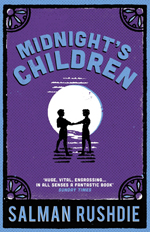Here we are again. I wrote about free speech back in April, but of course had no idea how this issue would rear its head again in a most dramatic and violent way. There is a deep irony in the fact that, within a couple of weeks of each event, someone attempts to murder a novelist at one end of the United States, widely condemned as an assault on free speech, while at the other, another school authority tries to ban books from the classroom.
Salman Rushdie had been living in fear of his life since 1989, when the Iranian leader Ayatollah Ruhollah Khomeini condemned the book, published the previous year, its author and publishers and issued a fatwa which called for him to be killed. The reason? The book is written in a magical realism style and treats aspects of Islam with playful satire. This was considered blasphemous and following Khomeini’s pronouncement, there were protest around the world both for and against the book. Zadie Smith’s novel White Teeth includes a chapter where one of the central characters attends a burning of copies of the book. The character has not read the book and does not sully understand the issues involved, but is drawn to the protest.
Rushdie was given round-the-clock police protection for many years, though with the changing of the Iranian regime over the years, the threat seemed to have receded, although the fatwa was never rescinded. The Japanese translator was killed in 1991 and the Italian and Turkish translators as well as the Norwegian publisher have been the subjects of attacks.
In this article, Rushdie is quoted as saying ‘there does seem to be within it an acceptance that certain ideas should be suppressed, and I just think that’s worrying.’ Rushdie’s name and The Satanic Verses are often at the centre of debates about free speech in publishing, as is shown here, a piece by none other than Margaret Atwood.
Should writers and speakers be more sensitive of other people’s values and sensibilities, or is the right to freedom of speech so important that it is fine to give offence, either knowingly or unknowingly? The fatwa on Rushdie, the issue now heightened by the attack, and the Charlie Hebdo attack in 2015 have altered that question. In many respects, Western society has been forced to be much more acquiescent towards Muslim sensibilities in particular.
 Salman Rushdie defended the right to offend. While they have not been knifed in the neck, a number of comedians have also been condemned for offensive routines. The latest, resulting in having his show in the Edinburgh Festival Fringe cancelled by the venue, is Canadian Jerry Sadowitz. His act was described as ‘unsafe, homophobic, misogynistic and racist’. Inevitably there has been a furore, with both supporters and detractors. Here’s an article supporting Sadowitz, arguing that audiences who book know what they are booking, and defending his show. And here is a very thoughtful and nuanced piece, exploring the controversy with real care and sensitivity.
Salman Rushdie defended the right to offend. While they have not been knifed in the neck, a number of comedians have also been condemned for offensive routines. The latest, resulting in having his show in the Edinburgh Festival Fringe cancelled by the venue, is Canadian Jerry Sadowitz. His act was described as ‘unsafe, homophobic, misogynistic and racist’. Inevitably there has been a furore, with both supporters and detractors. Here’s an article supporting Sadowitz, arguing that audiences who book know what they are booking, and defending his show. And here is a very thoughtful and nuanced piece, exploring the controversy with real care and sensitivity.
 I am not going to recommend a Sadowitz routine, but I will recommend Salman Rushdie’s Midnight’s Children, a tumbling magical realist novel about children born at the very moment of Indian independence, who have telepathic powers. While it does not attract the controversy of the later novel, it is deeply political, examining India’s transition from colonial rule to independence and the partition with Pakistan. It won the Booker Prize in 1981 and was also awarded the Booker of Bookers; it has sold millions of copies.
I am not going to recommend a Sadowitz routine, but I will recommend Salman Rushdie’s Midnight’s Children, a tumbling magical realist novel about children born at the very moment of Indian independence, who have telepathic powers. While it does not attract the controversy of the later novel, it is deeply political, examining India’s transition from colonial rule to independence and the partition with Pakistan. It won the Booker Prize in 1981 and was also awarded the Booker of Bookers; it has sold millions of copies.
All this debate shows how vital literature is to society, politics and culture – yet its study is seen to be under threat as fewer students opt to take degree courses in Literature and the UK Government wages war on courses which do not immediately lead to financial reward. This article profiles a number of successful and well-known figures from all walks of life who studied English at university. Yes, there are business people as well as writers!